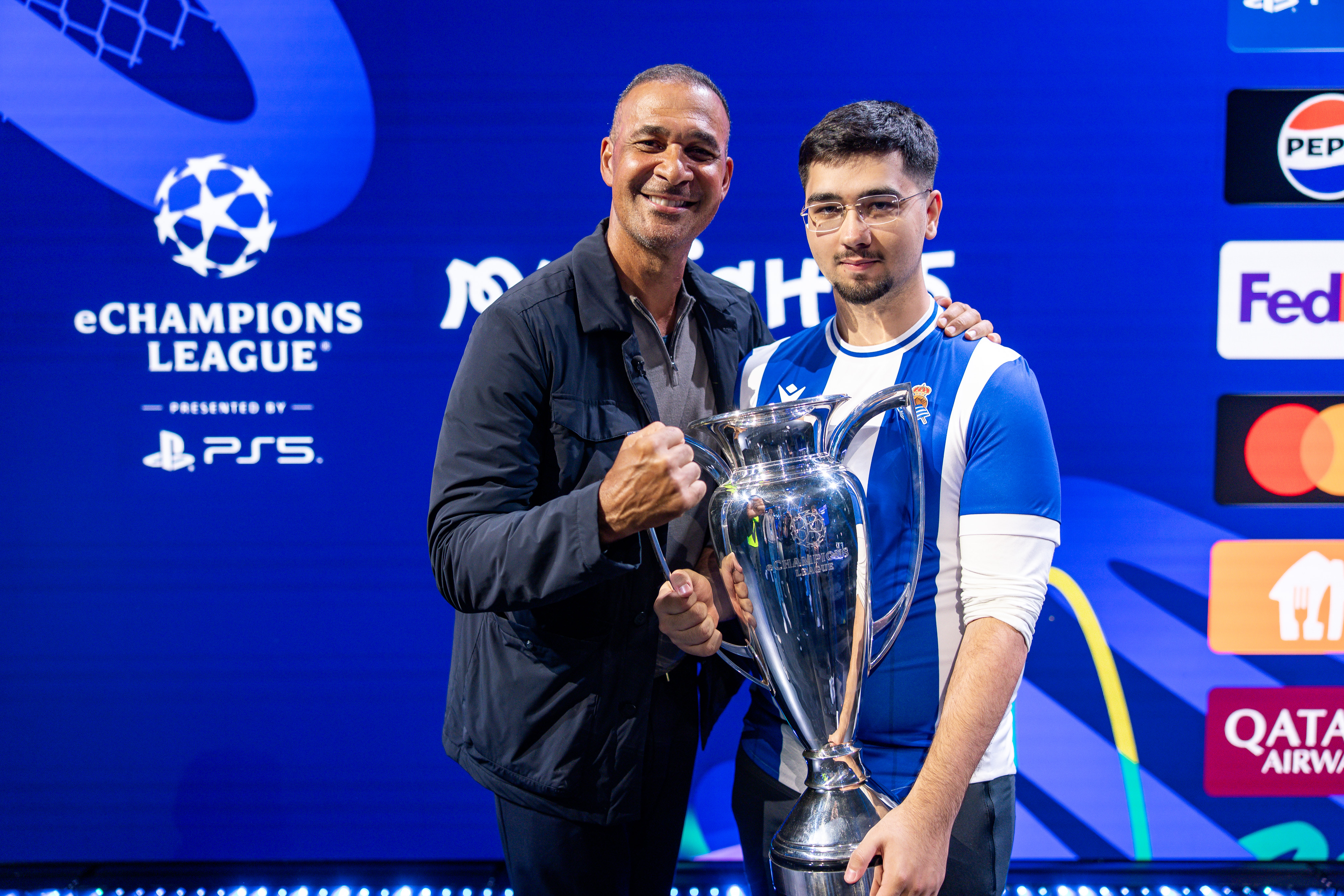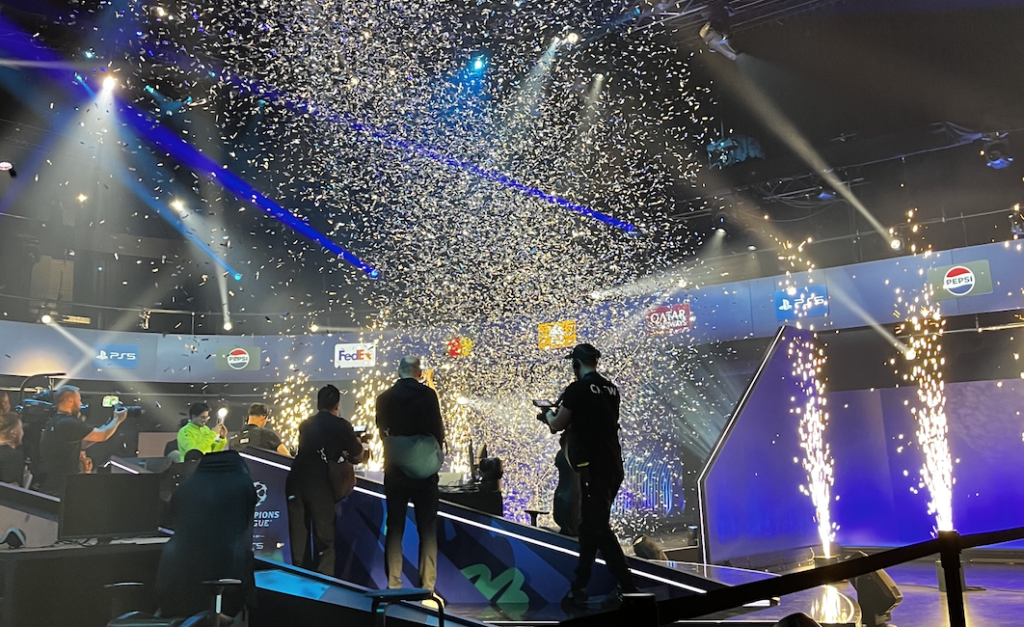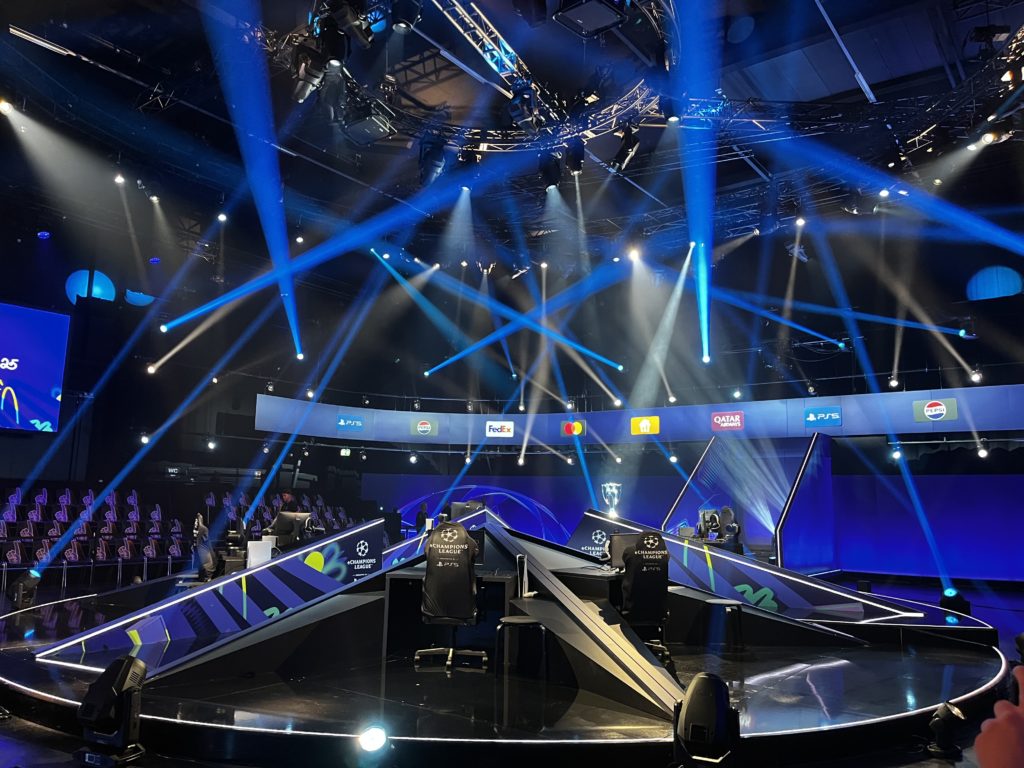May 30 – Ruud Gullit is not one to draw lazy comparisons. Ask the AC Milan legend whether traditional football has something to learn from the booming esports industry and his answer is refreshingly honest.
“Ooh, this is the real question,” he told Insideworldfootball at the UEFA eChampions League finals in Munich on Wednesday. “I don’t know if we can learn something from them.”
But even in that uncertainty, Gullit offers a clear-eyed view of what makes esports tick – and why it resonates so deeply with younger generations.
For Gullit, the most striking element of top-level esports isn’t spectacle – it’s concentration.
“I find it very, very difficult to stay focused like that,” he says. “Of course, we had a much more active way of doing sport. But for them? You’re sitting the whole time, watching a screen. That’s hard.”
It’s a perspective many in traditional sport still overlook: the mental endurance required to perform in a competitive digital arena, under bright lights and broadcast scrutiny.
As an ambassador attending the UEFA eChampions League Finals, Gullit isn’t shy about the differences in energy between a sold-out San Siro and a virtual tournament.
“You’re not going to get 60 or 80,000 people. It’s almost impossible.”
Still, he acknowledges that this new arena is more than just an echo chamber of gaming – it’s a gateway for connection.
“As an esports player, you go to all kinds of countries, and you can talk with each other at events. it shows that the internet widens your perspective, widens your friendships. That’s a different thing entirely to what I had when I was playing.”
The Dutchman was cautious about overstating the impact of esports on football fandom, but he sees potential in how younger audiences are introduced to the sport.
“There are five- or six-year-olds playing these games who don’t really know about football – their families aren’t into it. But maybe watching these players, they get into it.
“In football, it’s about recognising patterns – triangles, combinations. That’s something both on-screen and on-pitch sides share.”
Would a young Ruud Gullit have taken to esports?
“Maybe yes,” he smiles. “I started with Tetris and ping pong games. But I’m also happy we didn’t have this stuff.”
Why? Because of human connection.
“We socialised more. We did more things with each other. Now it’s all headphones and phones. I see people in restaurants texting each other while sitting side-by-side. When you eat, put the telephone away. Just chat. It’s as simple as that.”
In the end, Gullit doesn’t see traditional football and esports as competitors – but as parallel cultures. Different rhythms, different rules, but converging audiences.
“It’s a skill on its own,” he says. “But they need to learn tactics. They need fitness. They need focus. So, yes – maybe there’s something to learn after all.”
Contact the writer of this story, Harry Ewing, at moc.l1750481401labto1750481401ofdlr1750481401owedi1750481401sni@g1750481401niwe.1750481401yrrah1750481401



